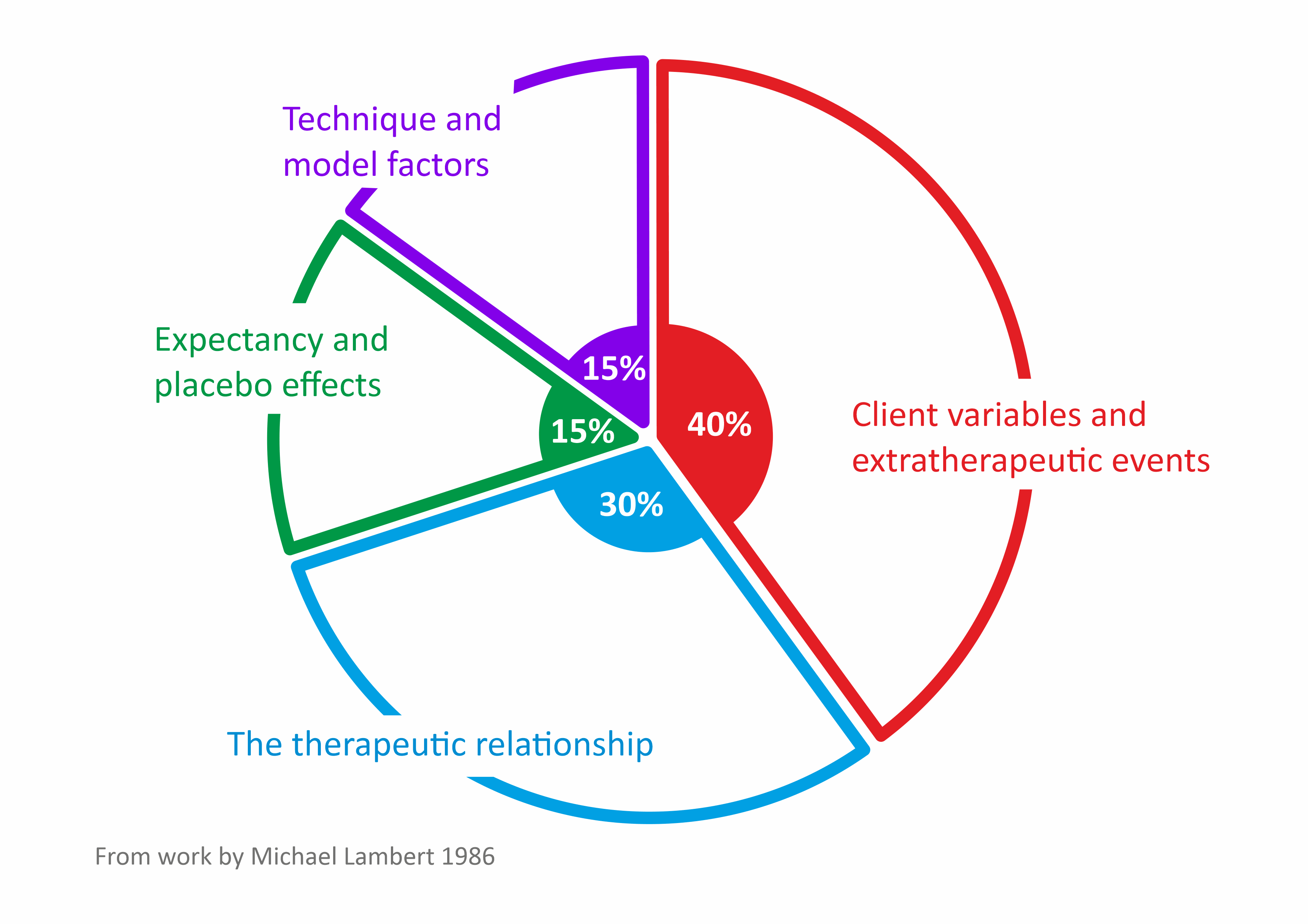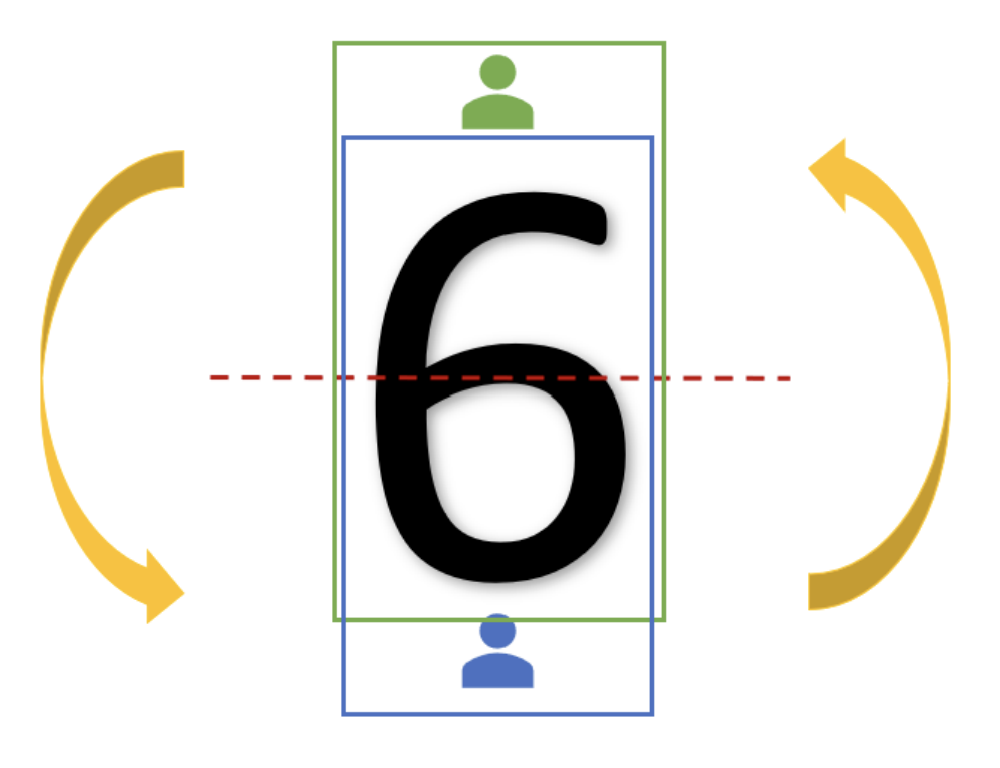I preface this entry with the admission that this is a working theory.
It came to me a few months ago when I was working with a client who was seeking support for relationship concerns. We were discussing the Gottman principles of Solvable & Perpetual Problems (something I need to write a blog about in the future), and it hit me!
Every couple (or individual from a couple) that I have spoken to at the end of their relationship has 'known' right from the beginning that it wasn't a good fit. They knew, but they ignored it. Why? Because they thought it was "too early" to talk about it, or it was "too small" to mention, or they felt they were being "too picky", or they recognised that "no one is perfect". Honestly, the list of reasons has been extensive.
There is more to a relationship than attraction and desire. While this may seem to be a statement of the obvious, it happens to be an area that is often overlooked or downplayed which can lead to devastating consequences. To have a clear understanding of compatibility is to arm yourself with information that is vital when choosing your partner or deciding whether to maintain an existing relationship.
The Three Categories
Every single time there were only three options. The couples saw things the SAME way, they saw things DIFFERENTLY/COMPATIBLY, or they saw things DIFFERENTLY/INCOMPATIBLE.
- Same - This is obviously the ideal. If you and your partner see a situation through the same lens you're in a good place. There is unlikely to be a lot of conflict and you're in agreement about the situation you are facing.
- Different: Compatible - This one is less ideal but still workable. With a little compromise you will find a solution to the problem you are facing that will mean that neither of you feel neglected or unheard.
- Different: Incompatible - This is the big bad. If you find yourself in this category in ANY of the topics we are about to go through, I hate to say it, but your relationship has an expiration date. The only way forward is with sacrifice and that doesn't bode well for a happy, satisfying, respectful relationship.
8 (ish) Points of Compatibility
I say 8 'ish' because it's a working theory. The number seems to ebb and flow a little at the moment, but for the most part, 8 seems to be the lucky number. There may be a bonus category that isn't listed, but is relevant to you and your circumstances.
As I mentioned earlier, these topics came to me when I was discussing the Perpetual Problems concept developed by John Gottman. These are issues that surface in relationships that are tied to core needs/wants/beliefs of the individual, or deeper still, their character. They are not superficial in nature, and they cannot be 'solved'.
The only solution - if you really want to call it that - is to identify them, assess them, and recognise whether or not you can accept them. Topics that can be accepted will likely be categorised as compatible, but the ones where you can't accept them (you're tempted to change them, tweak them, or change their mind over time) are the incompatible differences. The only path forward here is to ask "Am I willing to make the sacrifice for what I want/need knowing that things will not change, or do I need to walk away now?"
The 8 topics of Incompatible Difference:
- Marriage - one of you wants to get married; the other doesn't.
- Children - one of you wants children; the other doesn't. Perhaps this is related to how many children you each want to have.
- Extended Family - contact or no contact. If contact, how much? How do we spend/split the holidays? What happens if my spouse doesn't get along with my family, or vice versa? How will they be involved with the raising of our family?
- Religion - one of you believes and/or attends church; the other doesn't. Are you going to raise your children in the faith?
- Finances - agreement on earnings and spendings, individual accounts versus joint accounts, etc.
- Communication/Conflict Management - is there comfort in discussing the uncomfortable topics or do you avoid them? How do you raise and discuss conflicted topics? How open are you to learning new ways to interact? Are you setting healthy boundaries, or are you being rigid and unteachable?
- Sex & Intimacy - what do you like and dislike? How frequently do you want to be intimate with one another? What happens when one person wants intimacy and the other isn't in the mood? What happens if your appetites change?
- Down time - one person recharges by spending time at home watching TV and other person recharges by going out on the weekends and spending time with friends.
What to do...
Same
There is nothing that needs to be done when you identify situations like these. You are both on the same page and agree on what needs to be done and how. Perhaps it can be discussed further for the sake of refining the plan, but there isn't any need to troubleshoot the situation because you are already in alignment with one another.
Different-Compatible (D-C)
Acceptance is the name of the game! Identifying these situations, acknowledging that there is a difference between your two perspectives, and then implementing effective communication and conflict management strategies to work towards a compromise. This is where Assertiveness is incredibly important - your needs matter and so do your partner's. The goal is to respectfully discuss the situation with the aim of finding the compromise involving the least amount of sacrifice from both sides; this may require an agree to disagree outcome. Any time that you find yourself falling into the "I win/You lose" mentality, take a step back and decompress before coming back to the topic with a clear mind.
Different-Incompatible (D-I)
If you find yourself in a rigid/fixed situation involving an I win/You lose approach you’ve probably entered a D-I topic. Acceptance is also important here; however, it is the action after acceptance that is the real difference in these scenarios. You must ask yourself “Is this incompatibility tolerable in the long run?” If so, again you need to accept that there will be ongoing sacrifice in your future. If not, then you are faced with the last-resort option of walking away. It is a simple solution, in that there are only two options to choose from, however it is incredibly difficult in that the two choices you have are incredibly heavy. There are some D-I scenarios which will be no-brainers (i.e. abuse), however there are some that can feel ‘grey’ in nature. Where couples can find themselves in difficult situations with D-I topics is when they avoid them or disingenuously push through them. For example, let’s say the D-I topic is Marriage: Spouse A wants to get married, and Spouse B does not. A few things can happen here:
1. Early in the relationship it isn’t discussed at all
- Some couples avoid the conversations entirely, which means neither party knows where the other stands. They are having fun and enjoying each other’s company, but it’s all superficial – they aren’t going beneath the surface.
2. Early in the relationship it is mentioned but dismissed because the belief is that “It’s still too early to think about these things.”
- Spouse A prompts a question about marriage to see where Spouse B stands on the topic, and either:
- The topic is disregarded because “It’s too early to be thinking about this.”; or
- The topic is briefly spoken about to the extent where Spouse B discloses that he/she has no interest in marriage – Here we have successfully identified Marriage as a D-I topic in the relationship! Now this issue is how to handle it.
- If the couple takes this information as a prompt to explore the topic and genuinely reflect on the impact that it has on each other, they would be able to navigate the topic and land on an outcome:
- Accept & Continue
- Genuine: Spouse A muses that the relationship is excellent but-for this one area, and he/she decides that it is worth the sacrifice of marriage for the sake of maintaining the relationship
- Disingenuous: Spouse A feels that he/she can change Spouse B’s mind over time or is of the belief that Spouse B will eventually change their mind and decides to stay in the relationship with the hope that Spouse B will “come around”.
- This path breeds resentment!! This is why honest and open communication is vital. Both parties must be willing to express their true feelings on the situation so that their spouse can make an informed decision on they wish to proceed. So they can answer the question, “Is this relationship good for me?” (i.e. this is tapping into point 3. Wrong or Just Not Right?)
- Walk away
- Whether there is genuine disclosure from the outset of the relationship, or the information comes to light down the track, the decision may be made to walk away. This choice will typically come from a place of understanding that Spouse A accepts that Spouse B does not want to get married, and Spouse A identifies the fact that he/she values marriage enough that it is non-negotiable. There is no bitterness or resentment here, however there will very likely be sadness and disappointment, there is just acceptance of the fact that they are D-I and there is no sacrifice/compromise that can be found that is mutually beneficial. That is to say that if Spouse A stays, he/she will be sacrificing a core need for the sake of the relationship, which will inevitably lead to resentment. There is no judgment of the other person involved, there is just an understanding that they are not compatible with one another, and therefore the relationship cannot continue.
LEVELS
There can be levels, of sorts, when it comes to the issues you are facing: 1. You are completely on opposing sides, and 2. You are on the same side (want the same things) with opposing aspects/details/nuance (i.e. time frames, number of children, when you get married, etc.).
Regardless of which level you are on, the solutions mentioned above are the same. The primary reason that the level is important is to recognise that it is possible to have the same goal (you both want children), and still experience aspects of incompatibility (one wants kids now, the other wants to wait 5 years; one of you knows that you want to have kids, the other is on the fence). In this situation, neither partner is wrong in what they want and why they want it, but it requires a very important conversation to be had: does one of you make a sacrifice, or do you separate based on core needs not being met?
If neither of those options seem good to you, I completely understand, because they aren’t. What I want you to remember is that this is an example of an extreme situation that requires an extreme solution. Both outcomes have consequences; positive and negative, and the goal is to make the decision that best suits your needs. Some people choose to make the sacrifice and persevere, while others choose to walk away in pursuit of their needs. Where a lot of people struggle when faced with these situations, is that they tend to go looking for advice, or sometimes even permission, to act; be it to stay or go. There is an issue and an irony about this pursuit. The issue is that no one can tell you what to do, even if they are telling you something that will be advantageous for you in the long run. The irony is that you probably already know what you want to do, but you’re hoping to get the green light from a third party. A lot of the clients the I speak with fall into the latter category, and they are looking for me to tell them it is okay to leave.
IS IT ‘WRONG’ OR JUST ‘NOT RIGHT’?
Another concept that is separate to, but relevant, is that the assessment of the relationship as a whole. Compatibility plays a significant role in this, which is why I’ve added it here. Aspects of compatibility will either be a hurdle or a wall in a relationship, and because every relationship is different, you want to be able to look at the relationship you are in, assess it honestly for yourself, and know what to do from there. Is it good (you and your partner can move forward with openness and a willingness to grow), or is not great and it has a shelf life at best, or at worst it has come to its natural end?
Something is “wrong”
Something that is ‘wrong’ is something that could almost be considered tangible – it's something that you know is wrong or bad and would justifiably result in a relationship ending. Things like affairs and any kind of abuse would be good examples of this category. Regardless of how emotionally difficult it would be to walk away it is logically easier to leave because you can explain the reason “why it went wrong” to yourself and other people.
Something “isn’t right”
Something that just ‘isn’t right’ is something that people can struggle with quite a lot, because it’s like we don’t think we have the right to walk away. It’s almost as if we need for the relationship to be wrong/bad to justify walking away. The difficulty with this belief is that it often results in a “settling” mentality; “It’s not that bad, so I should stick it out.” Those 6 D-I categories are great examples of a relationship being ‘not right’. Another way of looking at it is to ask, “Regardless of whether or not there is anything wrong, is this relationship right for me?” You can also take it a step further and ask, “Are my needs being met? Am I willing/able to meet my partner’s needs?”
~ Until next time. Be Kind. Be Well.
Amylia


